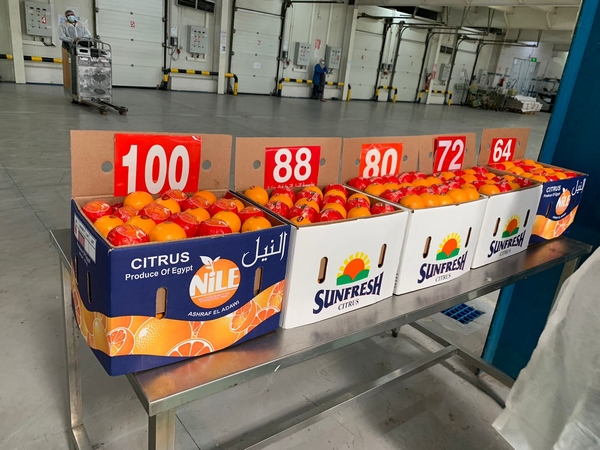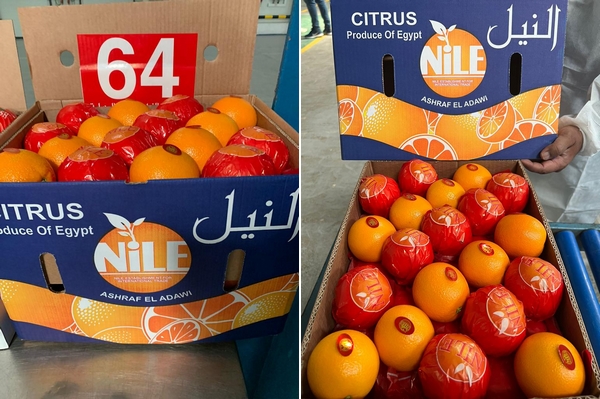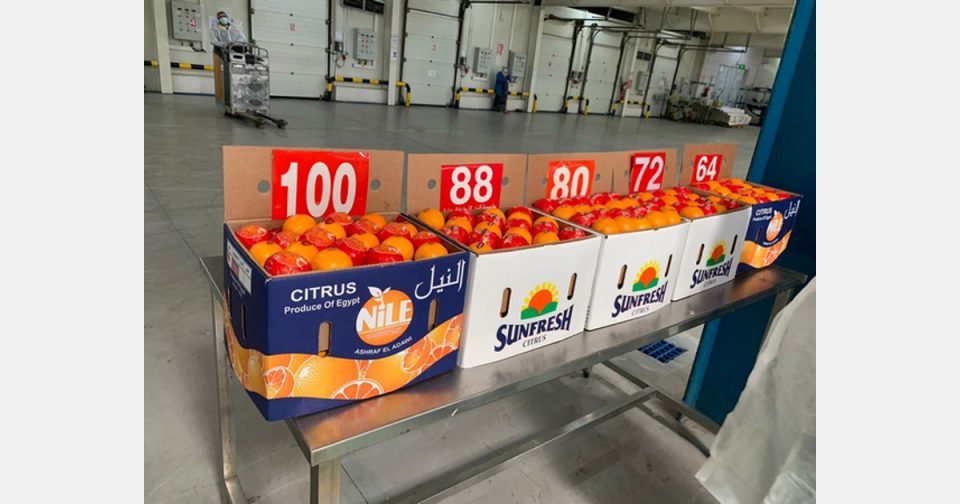It’s been a very challenging orange season this year for the Egyptian oranges. According to Dr. Esraa Assaf, export and logistics manager for Nile Establishment for International Trade, the start of the Navel oranges came with unstable demand and prices, while right now during the Valencias, the company is seeing uncertainties due to the war in Ukraine.
“The conflict has strongly affected the Egyptian Valencia export. Egypt was the largest exporter of oranges last year and exported almost 1.8 million tons. By now, we can say that this season can’t compare to the previous one. There are a lot of factors negatively contributing to this season, combined with lower demand and no good prices. Egyptian oranges lost Russia as the biggest importer, with no replacement in terms of sizes and requested quality standards. Overall, demand has been pretty slow, I’d say we’re looking at 40% less demand than last year.”

Dr. Assaf states that the Egyptians have been dealing with higher costs, just like the rest of the world: “There have been many challenges this season, and each market seems to have its very own difficulties. Sea freight rates went higher compared to last season, along with an increase of packaging materials costs, which affected the total cost of product. Given the fact there’s a difference in prices for various markets, it’s been hard to compete in certain regions.”
The Egyptian oranges have had to deal with a lot of issues in most of their main regions, Dr. Assaf explains. Whether it’s the Russian, European or Asian market, each has its own specific problems to deal with for an Egyptian orange exporter: “When it comes to Russia as a market, as I mentioned before, Russia is one of the main importers of Egyptian oranges. The current situation of this market is unpredictable due to the war, currency and payment issues and even the halt of shipping services to some Russian ports. And also, before the war started, some conflicts concerning MRLs, which caused a delay of releasing oranges shipments arrived at the Russian port and redirected other shipments to another destinations.
“On top of that we’re seeing very low prices recently. And this is only the Russian market, if you include Ukraine and Belarus, the markets account for almost 50% of the total importers of Egyptian Valencia oranges. With no other markets to replace the challenging ones, the Valencia is in a very hard place, the Russian war is causing a loss of the orange value in the market by no less than 40%.”

“For the European markets, the Spanish started the season with good volumes to cover European market with better prices. This means there was no window for the Egyptian Valencias, except for some requests on small sizes, which we would have sold to other markets in the Far East. Spanish oranges supplied a high percentage of the big sizes in Europe this season. After the Russian war started, many Egyptian exporters started to supply more volumes to the European market as an existing channel, in order to minimize the losses due to being under the pressure of production, by selling under consignment base and absolutely a lot of quantities arrived to EU.”
“In the Far East, we can say Bangladesh and India are workable markets at the moment, but India is not like the previous season and most of exporters tried to push more quantities to both of these markets. Both of them are committed to small sizes only, and there has been low demand in other markets like Malaysia and Singapore. China has a local production this year, which doesn’t give an opportunity for Egyptian exporters to supply even regular quantities to this market. Of course, some exporters are pushing for more quantities to be accepted in China and offers under MPG and consignment. This is important for the exporters, since the lion’s share of demanded sizes in China are large ones.” Assaf concludes.
For more information:
Dr. Esraa Assaf
Nile Establishment for international trade
Email: [email protected]
www.nilefruit.com


